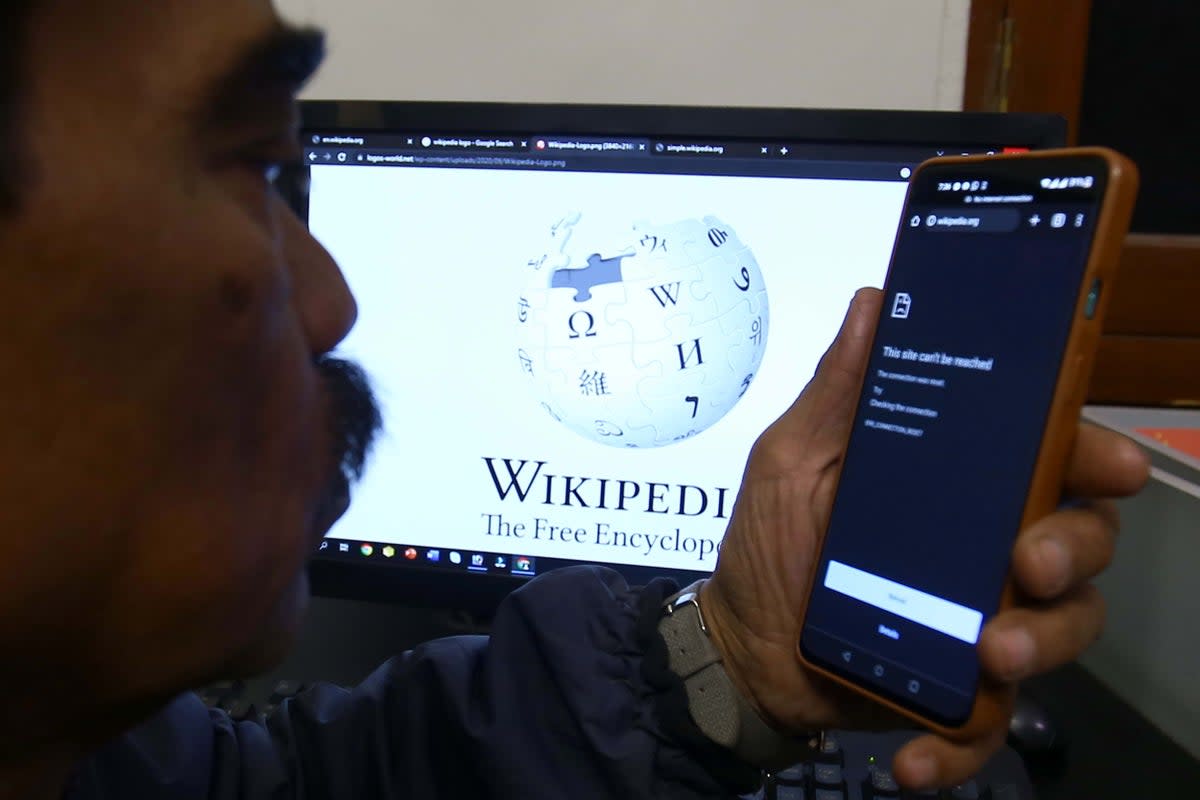Pakistan unblocks Wikipedia just days after ban for ‘blasphemous content’

Access to Wikipedia has been reinstated in Pakistan less than a week after a controversial ban was imposed on the online encyclopedia for containing “blasphemous content”.
The website became accessible to users on Tuesday after the country’s prime minister Shehbaz Sharif ordered authorities to revoke the ban following criticism.
“The prime minister is pleased to direct that the website (Wikipedia) may be restored with immediate effect,” read a copy of the order, tweeted by Marriyum Aurangzeb, Pakistan’s minister of information and broadcasting.
The reversal of the order came after Pakistan’s media regulator blocked the site last week for not removing purportedly blasphemous content, claiming it hurts the sentiments of Muslims.
The Pakistan Telecommunications Authority (PTA) gave Wikipedia 48 hours to remove content deemed “blasphemous”, without providing any details on what the content was before it blocked the website.
An agency spokesperson said on Saturday that Wikipedia would “remain blocked until they remove all the objectionable material”.
The ban led to an uproar with rights groups, including Amnesty, calling the ban an “unjustifiable restriction on the right to freedom of expression.
PAKISTAN: We are alarmed about the blanket #Wikipediablock implemented by the Pakistan Telecommunication Authority (PTA) on 4 Feb. This amounts to an unjustifiable restriction on the right to freedom of expression and must be reversed immediately and unconditionally. (1/3)
— Amnesty International South Asia (@amnestysasia) February 6, 2023
Following criticism, Mr Sharif’s government set up a five-member committee to look into the matter and ordered Wikipedia services be restored immediately.
Welcoming the order, the Wikimedia Foundation said the lifting of the ban “means that the people of Pakistan can continue to benefit from and participate” in the growth of a global movement “to spread and share knowledge that is verified, reliable and free”.
Blasphemy is a highly sensitive and incendiary issue in the Muslim majority country. Anyone found guilty of insulting Islam or its figures can be sentenced to death under Pakistan’s contentious blasphemy laws.
While the country hasn’t yet carried out a death sentence, allegations or even rumours of blasphemy have led to mob violence and even deadly attacks.
According to rights organisations, such allegations are frequently used to intimidate religious minorities and settle personal scores.
The country has also briefly banned social media platforms like Facebook, TikTok and YouTube and dating sites like Tinder in the past based on similar allegations of containing content it deemed immoral or inappropriate.
